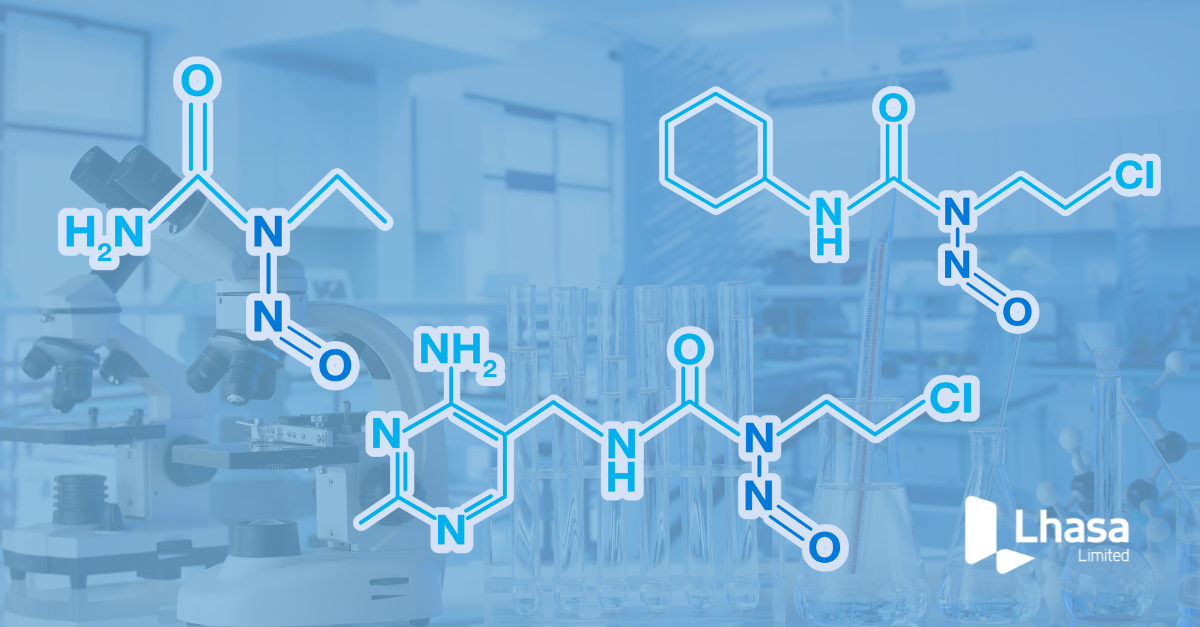2024 was an exciting year for Lhasa, made possible through collaboration with our members and the efforts of our dedicated team. Below, we share some of the year’s highlights, celebrating milestones that reflect our purpose to support decision making on chemical safety and minimise animal testing.
Connecting with our community
We hosted ten impactful webinars in four different languages over 2024, featuring industry leaders and regulatory experts who shared insights on topics such as read-across, extractables and leachables, nitrosamines, and ICH M7 classification and control.
In addition to our online events, we presented our research at five in-person symposia. Laura Johnson, Associate Director of Applied Sciences, reflected:
“We’ve had a fantastic year connecting with the wider scientific community, hosting symposia in Brazil, India, South Korea, Japan, and China. These events allowed us to present our research and connect with experts globally.”
We also hosted symposia in Mexico and Brazil for the first time. This expansion into new markets demonstrates our commitment to making scientific knowledge more accessible. Stay tuned for updates on where we’ll be visiting in 2025.
Scientific software proven to solve real-world problems
Nik Marchetti, Head of Solutions, reflected on the advancements we’ve made in developing our in silico tools:
“This year, we celebrated the launch of Acrostic, an in silico tool that supports setting acceptable intake limits for novel and untested nitrosamines through read-across. We also released Zeneth 10, introducing different prediction types for structure-based or nitrosamine risk assessments.”
Mo Anoshehpour, Head of Software Development, added:
“In 2024, we expanded the capabilities of Sarah Nexus by adding a chromosome damage endpoint, enabling comprehensive genotoxicity assessments for impurities. And with the release of Kaptis 2, we took a big step forward in bridging the gap between non-animal studies and confident safety assessments.”
There were also developments within our Vitic Data Sharing Initiatives, with seven new data releases. The sharing of high-quality data in this way underscores the benefits of collaboration in driving industry progression.
Advancing new science to support chemical safety assessments
Significant strides were made in advancing our science. Our team authored and co-authored numerous publications in prestigious journals such as Organic Process Research & Development, Regulatory Toxicology and Pharmacology, and Computational Toxicology.
Adrian Fowkes, Director of Science, commented:
“These publications demonstrate the excellence of our science that drive our solutions that help our members make decisions for chemical safety assessments.”
Tasha Jones, Scientist at Lhasa, added:
“We were proud to showcase our research internationally, presenting posters and vendor-hosted sessions at conferences like Society of Toxicology, European Toxicology, Genetic Toxicology Association, and the American College of Toxicology.”
Recognising scientific excellence
The Lhasa publication awards celebrate exceptional contributions by our scientists and highlight research that drives progress and shapes the future. This year, we invited our members to vote for their favourite scientific publication across three categories: Toxicology (specifically nitrosamines), Toxicology (excluding nitrosamines) and Chemistry. Congratulations to the winners! Explore our latest publications.
The Richard Williams Memorial Award, established in 2020, honours the scientific contributions and memory of Dr Richard Williams. This award recognises exceptional early-career investigators making significant strides in their fields. We were delighted to announce Raj Gandhi, Associate Director of Genetic Toxicology at AstraZeneca, as the 2023 winner. We spoke to Raj about his award-winning research, career journey and more.
Celebrating culture and embracing new technologies
For a second year in a row, we participated in the Leeds Festival, a collective celebration of digital culture in all its forms showcasing the region’s digital enterprise and innovation. Tima Camara, Lead Architect, reflected on its impact:
“We strengthened our presence in the local tech community by hosting and co-hosting four exciting events right here in Leeds, furthering innovation and collaboration.”
We were also proud to be shortlisted for three Leeds Digital Festival 2024 Awards: Best Tech Place to Work, Tech Team of the Year, and Equality, Diversity, and Inclusion. These recognitions highlight our commitment to creating an inclusive and diverse environment where our work thrives. Did you see our new company values video? Watch it now!
Internally, we hosted several exciting events, including the AWS Hackathon, bringing our teams together to explore how AI can further support member experiences. Through collaboration and the sharing of ideas, our team can continue to push the boundaries of what we can achieve.
Consult Lhasa launch
The year began with a new and exciting chapter: the launch of Consult Lhasa. Consult Lhasa is a wholly owned subsidiary of Lhasa, providing scientific risk assessments globally and positively impacting human health. Find out more about Consult Lhasa.
Watch the video below to discover more about Lhasa in 2024.
“We’re now starting to look forward to 2025. We have some great plans in place!” Chris Barber, CEO.
Last Updated on January 10, 2025 by lhasalimited



